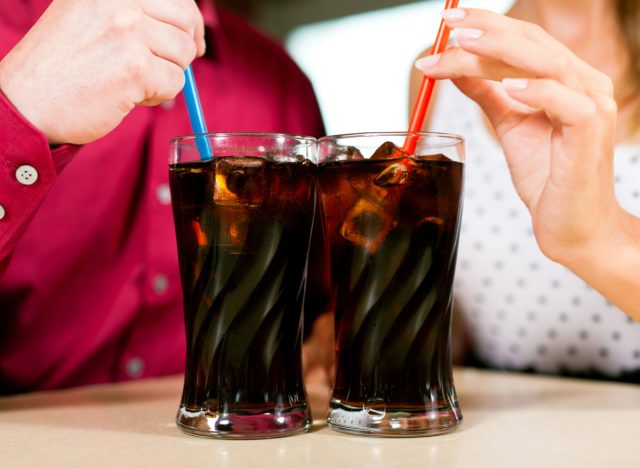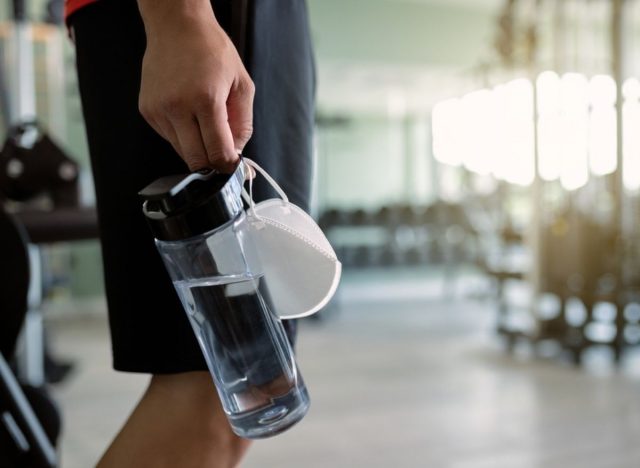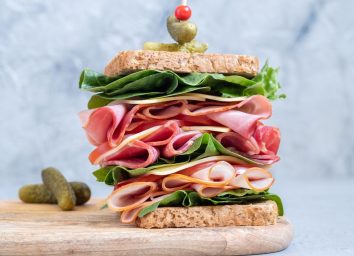Drinking Habits You Must Follow If Heart Disease Runs In Your Family

If heart disease runs in your family, science says you are at greater risk of developing heart problems. However, a large study in The New England Journal of Medicine confirmed that practicing healthy lifestyle habits can make all the difference in reducing your heart disease risk.
In the study, researchers found that even those participants in the top genetic risk category (at a 90% higher risk of having a heart attack or stroke) reduced their risk significantly if they lived a healthy lifestyle. People in the super high-risk group who exercised, didn't smoke, maintained a lean body, and ate a healthy diet reduced their heart disease risk by nearly 50%.
We'll assume you know that eating a diet of fried food, processed meats like bacon and hot dogs, and red meat is not considered a heart-healthy lifestyle, but did you know that poor drinking habits can stack the cards against you, too?
How drinks affect your heart disease risk

High-calorie drinks, sugary beverages, and excess alcohol are not all that different from cigarettes and bacon double cheeseburgers, and fries to your cardiovascular system. Recent research published in the Journal of the American Heart Association (JAHA) investigated the association between drinking sugar-sweetened beverages and the outcomes of cardiovascular disease. The 20-year study documented 8,848 cases of cardiovascular disease and found that women who consumed one or more servings of sugar-sweetened beverages per day were at higher risk of cardiovascular disease than women who rarely or never drank caloric soft drinks, sugary beverages, and fruit drinks.
The JAHA study did not take into consideration family history of heart disease, suggesting that regardless of any genetic proclivity, what you drink can affect your heart health. But if you have a genetic link or follow an unhealthy lifestyle similar to a family member who has heart issues, it's likely that avoiding certain drinking habits and adopting others are wise preventive steps to take.
Read the ingredient labels on drinks.

Since you aren't chewing them and they don't satisfy hunger, liquid calories often go unnoticed by your brain.
"Drinks are quick calories meaning we can consume a high amount of calories over a very short time and not even feel full," says Kim Pierce, RD, LDN, owner of The Outdoors Dietitian.
Check those ingredient labels for calorie and added sugar counts.
"Sugary drinks should be limited due to their ability to cause blood sugar spikes, which can lead to diabetes and obesity," says Jesse Feder, RD, of Strength Warehouse USA. "High blood sugar increases your risk of high blood pressure, heart disease, and other health complications."
Cut back on alcohol and sugary cocktails.

"If you have a family history of heart disease, it is important to limit consumption of alcohol and sugary drinks including juice even so-called 'all natural' or 'healthy' juices, soda, sports drinks, and energy drinks," says Katie Tomaschko, MS, RDN, a contributor at Sporting Smiles, who specializes in nutrition for cardiovascular disease patients. "Alcohol consumption should be limited because alcohol can cause a temporary increase in heart rate and blood pressure."
Remember that alcohol adds calories, so mixing hard alcohol with sugary-laden mixers as well as sodas, juices, and simple syrups can triple a drink's calorie and sugar load. One terrific drinking habit to adopt when drinking alcohol is having a tall glass of water in between cocktails.
Carry a water bottle wherever you go.

It may be one the of most effective rituals to introduce to your daily life if you are at increased risk of cardiovascular disease or other metabolic disorders like diabetes: Carry a water bottle wherever you go, suggests certified strength and conditioning specialist Silvia Carli, RD, CSCS, with 1AND1 LIFE. "Drinking water is critical to so many functions in your body. And by having a water bottle handy, you'll be less inclined to reach for sugary, calorie-heavy drinks when you are thirsty."









